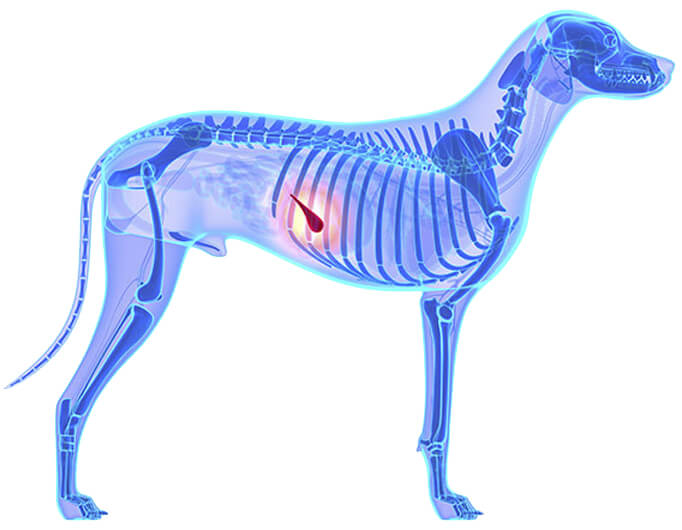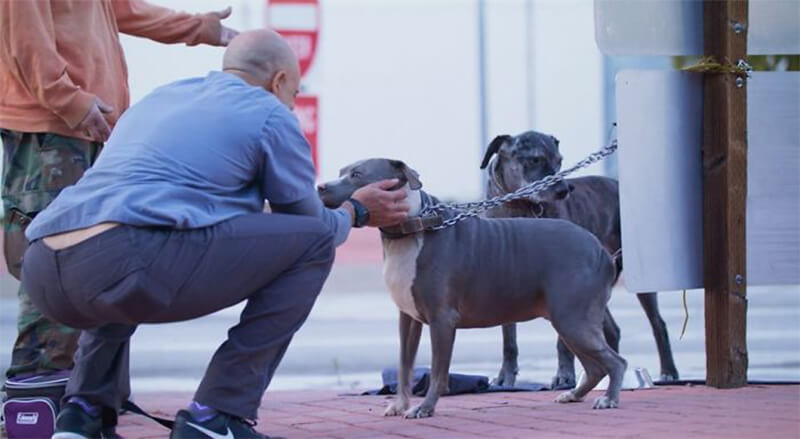Dog pancreatitis is one of those conditions that owners must be informed about before it strikes, since the warning signs may not always be obvious first. Whereas the symptoms might be mistaken for something less serious, and yet it’s potentially deadly.
What is pancreatitis in dogs?

Pancreatitis in dogs occurs when the pancreas is inflamed. Its purpose is to help dogs digest food and control their blood sugar.
Dogs with severe pancreatitis are likely to suffer from various signs including a loss of appetite, vomiting, anorexia, depression, illness, diarrhea, and lethargy. They may also show symptoms of dehydration and abdominal pain. In milder forms, the symptoms are less obvious but may still include loss of appetite, lethargy, and diarrhea.
Before looking at pancreatitis, let’s talk about the “ititis” and describe the small but vital organ itself:
The enzymes are activated only when they reach the small intestine and the organ is working normally. Pancreatitis in dogs, the enzymes activate when they’re released, causing inflaming and damage to the pancreas and its surrounding tissue and other organs.
Clinical Signs of Pancreatitis in Dogs
- Anorexia
- Diarrhea
- Fever
- Weakness
- Depression
- Lethargy
- Severe dehydration
- Hunched back
- Abdominal pain
- Loss of appetite
- Repeated vomiting
- Loss of appetite
If your dog shows signs of one of these and only occasionally, monitor her. But if they show more than one symptom at a time, and repeatedly, a call to the veterinarian quickly is important.

Causes of Pancreatitis in Dogs
There are countless causes and risk factors that can cause pancreatitis. Although often the attack appears in blue. Among them are:
- A high-fat diet
- Trauma
- Medications
- Cancer
- Inflammation
- Obesity
- Certain medication such as steroids or other toxins
- Hypothyroidism
- Diabetes mellitus
Basically, if your dog is showing any symptoms of abdominal pain, the worst thing to do is feed him a fatty diet. This is one of the many reasons that giving your dog table scraps, as greedy as it may be, isn’t advisable.
How do Vets Diagnose Pancreatitis in Dogs?
- Dog’s medical history
- Radiographs or ultrasound
- Blood tests to measure pancreatic enzymes
- Physical examination including gums, heart, stomach, and temperature
Management and Treatment of Pancreatitis in Dogs
The most common management and treatment options are:
- Antiemetic medication for vomiting
- Strict monitoring of the deteriorating condition
- Intravenous fluid therapy in severe pancreatitis
- Relaxing the pancreas (stopping food and water for 24 hours)
